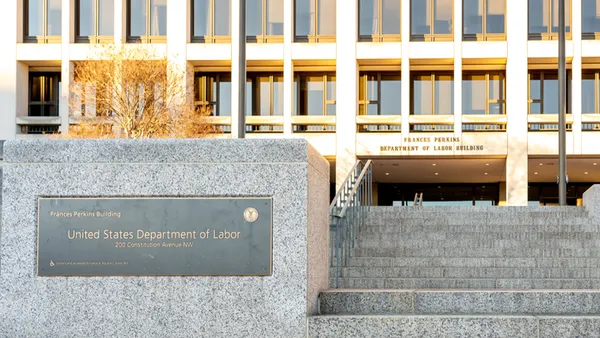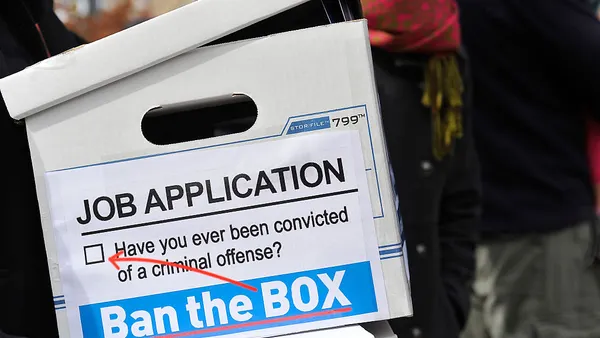Dive Brief:
- DHL Express and its vendor Flyaway Express violated federal law by failing to properly compensate package delivery drivers and couriers, according to a class-action lawsuit filed in federal court in Tennessee (Jones v. DHL Express (USA) dba DHL Express and Flyaway Express, LLC., No. 2:20-cv-02595 (W.D. Tenn. Aug. 12, 2020)).
- The defendants paid the plaintiff a flat rate of $120 a day regardless of the number of hours she worked. The lawsuit characterized the defendants' day rate policy as unlawful, as it failed to compensate drivers or couriers for all time worked and failed to provide "overtime premium for all hours worked in excess of 40 per workweek," in compliance with the Fair Labor Standards Act.
- The plaintiff claims that DHL and Flyaway Express are joint employers. "Although DHL does not directly pay delivery drivers or couriers, its policies and practices regarding delivery goals and payment dictated the delivery vendors' ability to pay the delivery drivers or couriers for overtime work," the complaint says.
Dive Insight:
When two businesses are found to be joint employers, both can be held liable for legal violations. Employment situations that involve contracting arrangements, franchise relationships and staffing agencies often lead to claims of joint employment status.
Control can be an important consideration in determining whether a corporate entity is a joint employer. Earlier this year, the National Labor Relations Board (NLRB) put into place a rule stating that an entity may be considered a joint employer of another's workers only if it exercises substantial direct and immediate control over the employees' essential terms of employment such as wages, benefits, hours of work, hiring, discharge, discipline, and supervision.
Some employers have been successful in arguing that they were not a joint employer because they did not exercise sufficient control over workers. McDonald's, for example, prevailed in court when it argued that it was not a joint employer of workers at its franchisee-owned locations. The 9th U.S. Circuit Court of Appeals held in October that the chain was not a joint employer in part because it didn't have control over the franchise workers' wages, hours and working conditions.
McDonald's was also successful in December 2019 in arguing that it wasn't a joint employer when the NLRB approved a settlement involving McDonald's franchises that absolved the corporation from joint employment responsibility for certain alleged labor violations.













